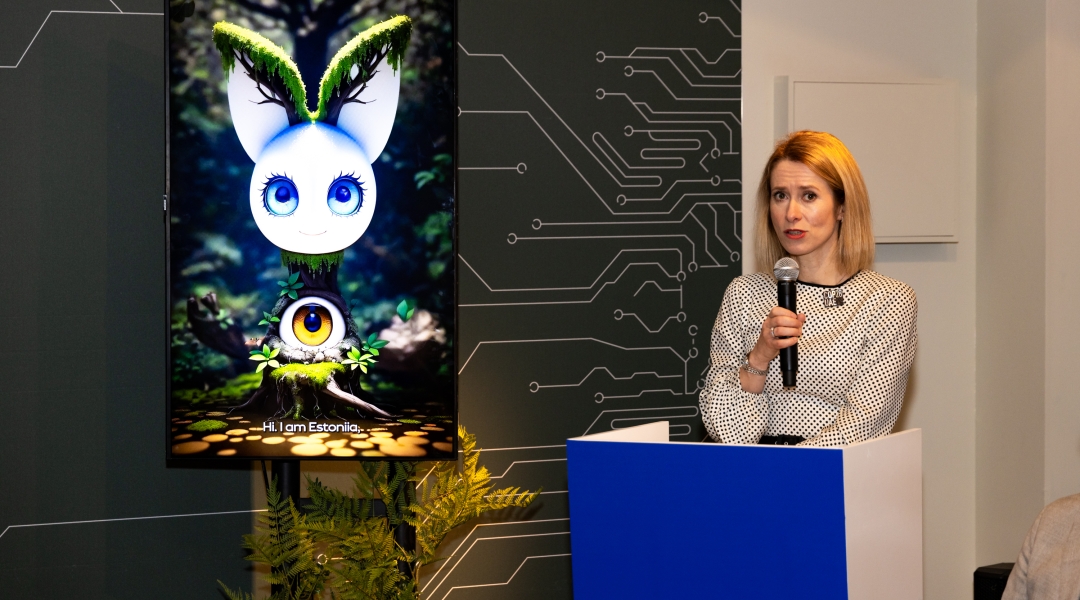According to Prime Minister Kaja Kallas, Estonia has its own pavilion at COP28 for the first time this year. “Small countries play an important role in achieving climate neutrality and carrying out the green reform – they provide solutions. The decision to open the pavilion was driven primarily by the desire of digital and green companies to introduce the Estonian experience of implementing the green reform to an international audience. Another important driver was the desire of our companies, as well as universities and other institutions, to expand their contacts and find new partners,” Kallas explained.
Prime Minister Kallas noted that the main message of the Estonian pavilion is that we should see fighting climate change as an opportunity. “As an innovative country, Estonia sees the green transition as the next big opportunity to create a better living environment. To meet our climate targets, businesses and society at large need to change the way they operate and think. Various digital solutions play a key role here. In Estonia, we call it the twin transition. This means that we have put e-solutions to work to achieve our climate targets,” said Kallas.
The prime minister added that we can share our experiences with others and find new partners in the Estonian pavilion. “Estonia has a lot to offer the world in terms of achieving climate neutrality. The Estonian pavilion will share its experiences, for example, in the implementation of the digital transition, and introduce the solutions of our companies in the fields of energy efficiency, smart cities, data management, and the circular economy,” said Kallas.
On the occasion of the opening of the pavilion, Estonia also hosted a high-level debate focusing on the links between climate and security. “Geopolitical tensions and wars, such as Russia’s war of aggression in Ukraine, are taking attention and resources away from addressing the climate crisis. Military action also has direct and indirect negative effects on the environment. We see how Russia is very deliberately using ecocide and environmental destruction as part of its warfare. Therefore, it is also extremely important from an environmental point of view to put an end to Russia’s aggression,” Kallas said in her speech. In addition to the Estonian prime minister, Icelandic Prime Minister Katrín Jakobsdóttir and the UN Special Rapporteur on Human Rights and the Environment, David R. Boyd, participated in the panel. The panel was moderated by Dr Benedikt Franke, CEO of the Munich Security Conference.
As part of COP, Prime Minister Kallas also discussed climate and security at the Munich Security Conference’s event “Climate Security Moment: Assuming Joint Leadership”, with NATO Secretary General Jens Stoltenberg, US climate envoy John Kerry, German climate envoy Jennifer Morgan, Icelandic Prime Minister Katrín Jakobsdóttir, Executive Director of the UNEP Inger Andersen, and Munich Security Conference chairman Christoph Heusgen.
Over 60 events will take place in the Estonian pavilion during the 11 days of the conference. The Estonian companies represented at COP28 include 1MTN, Auve Tech, Beast, Fibenol, KappaZeta, KWOTA, Nortal, R8 Technologies, Ragn-Sells, Rail Baltica Estonia, Zero Terrain, Timbeter, and Utilitas. The University of Tartu, the Estonian University of Life Sciences, and Tallinn University are also represented. The city of Tallinn, Let’s Do It World, Impact Day, and the Centre of Estonian Rural Research and Knowledge are also part of the delegation.
More information about the Estonian pavilion can be found at estonia.ee/estonia-at-cop28
